Smith Electric Vehicles is making a return to the UK market with its new range of all-electric delivery trucks due to hit the roads next March.
The North East-based OEM has produced electric vehicles for more than 70 years, from its early days as a milk float specialist to its modern electric CV range that started development in the mid 2000s.
However, a previous lack of industry demand for all-electric trucks and high production line costs led to a temporary cessation in build for the UK market in 2014.
New business model
The business has now undergone a radical overhaul, with a fresh new strategy for bringing its all-electric zero-emission trucks into prominence in cities across America and Europe.
The European business has been incorporated to become a subsidiary of American-owned Smith Electric Vehicles group, with a new management team in place to take the business forward and a healthy
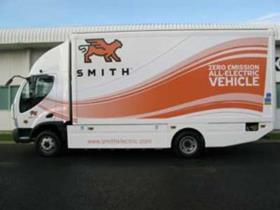
injection of funding from US investor Sutter Securities to kick-start expansion plans.
A new ‘hangar build’ strategy has also been developed to ensure electric trucks are able to be produced simply, cost-effectively and locally to major cities where demand is greatest for zero-emission delivery vehicles (see box, below).
But more importantly, appetite for making the switch to electric trucks is growing across major cities, believes David West, global sales at Smith Electric, and the company wants operators to draw upon its expertise in the technology to help them understand its potential for urban deliveries.
Learn from us
“We want people to understand that our trucks work very well. We've had 800 of them [on the roads globally] and have developed every single component within the vehicle. About $250m (£201m) spent over the years on doing this. Nobody has more expertise, more trucks, or more mileage - over 15 million miles. We have this data,” he says.
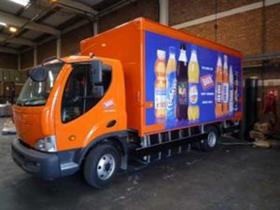
The company is also willing to share this extensive data bank with the wider industry to help instil confidence in operators and keep the technology moving forwards.
For example, Smith Electric is a partner in the Freight Electric Vehicles in Urban Europe (FREVUE) project, sharing data collected from one of its vehicles being operated by Clipper Logistics as part of a low-emission consolidation and last-mile delivery operation on London’s Regent Street.
“But it's an extremely challenging business,” he adds. “Especially with the way things were previously run, not streamlined enough. We were probably also a little bit ahead of the game, as 10 years ago there wasn't this kind of acceptance and uptake.”
Air quality focus
West believes the time is now right for operators to make the switch to electric trucks, as the pending roll-out of clean air zones nationally, including the capital’s Ultra Low Emission Zone by 2020, will drive demand for zero-emission delivery vehicles.
The government’s latest Plug-in Van Grant extension to larger delivery vehicles is also providing an impetus.
“With the introduction of a 20% government discount now available, our £92k-96k (dependent upon $ to £ rates) trucks suddenly become less than £75k - it's such an opportunity for people to take an advantage of this grant,” he says.
The company is particularly keen to partner with smaller businesses looking to move towards a carbon-neutral operation, as it believes there is scope to make an immediate positive impact on local areas.
“We can't convert the likes of TNT, DHL, Ocado or Yodel immediately. It's much better to prove it on a slightly smaller level to somebody who does just have a localised delivery area like the milk rounds used to be. Anybody who does a specific local, daily route should have an electric truck because in the long term it will be a lot cheaper,” says West.
He adds that making the move to electric trucks now will also help businesses to future-proof their delivery operations ahead of likely legislation that will eventually see diesel-powered vehicles removed from the roads.
Refined technology
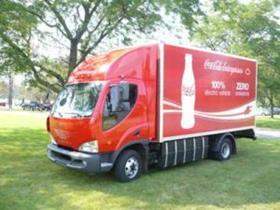
Since 2014, Smiths has dedicated its resources in the UK to R&D and has been refining its electric CV offering using telemetry data from its range of trucks in operation around the world.
Delivering across Europe, Asia, the Middle East and North America, the existing mix of Edisons (based on the previous Ford Transit chassis) and Newtons (built on an Avia chassis) currently in operation range from 7.5-tonnes to 12 tonnes.
Data has provided valuable information for researchers on how restricted route of environmentally sensitive operations could be suited to electric CVs, as well as learning how the units fared in different climates, topography and duty cycles.
The latest-generation trucks due for launch next spring will comprise Newtons offered at 7.5-tonnes, 10-tonnes and 12-tonnes with wheelbases ranging from 3.9m to 5.6m.
A new battery management system has been developed, which will enable use at a wider range of
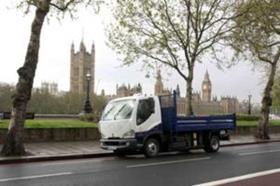
temperatures and increase range up to 20% compared with previous models – from 100 miles to 120 miles at the top end. Further improvements are also in the pipeline for 2017-2018, with upgrades made available.
The driveline has also been made 200kg lighter, with more driveability and efficiency built-in.
An enhanced telemetry system monitors every second on the vehicle to enable a technician to plug in and see straightaway what the fault is.
Detailed performance data
For operators interested, but perhaps nervous about investing in an electric truck, Smith provides a personalised report on how the technology would perform on a known duty cycle, which also helps select the correct battery for the job.
This route review facility allows Smith’s to take a customer's conventional duty cycle and record it and analyse it to see what the most appropriate battery would be, as if it is too heavy, it will impact vehicle performance.
The analysis also looks at driving conditions and weather, for example, and takes away a lot of the guesswork for potential customers.
For example, Newcastle University [which runs a Smith Newton on a set route between its campus and a Clipper-run consolidation centre in Teeside] used the analysis for its proposed vehicle usage. Its pre-use report was able to correctly predict actual performance with less than 2% discrepancy between projected data and real-life, according to the manufacturer.
For customers interested in incorporating hydrogen fuel cell, or even Euro-6 dual fuel capabilities into their electric trucks, these options are also available as a specification option when ordering a Smiths truck, with such models already in use in America.
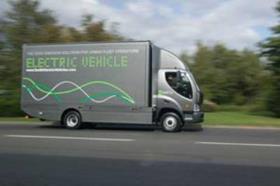
Availability
The new Newtons will be hitting UK roads in March, produced from a new hangar site in the North East. Units will follow in the US later in the year.
Expansion will continue with a second hangar unit planned for London, one in Norway, Sweden and Denmark, all supported with technical expertise from the North East.
West says Norway in particular has welcomed the vehicles’ introduction “with open arms” as they are in immediate need of the trucks ahead of legislation requiring their vehicles to be emission-free by 2020.
Around 115 units are expected to be produced next year, with 200-plus predicted per annum for 2017 onwards.
Pictured: a selection of previous-generation Newton models in operation across the UK
Cost-effective productionSmith’s new hangar build concept will see all the components for trucks shipped to the locality they will be used in and built there. Not only is this a more cost-effective option for production of trucks, believes the company, but it will also help establish a vital maintenance base at a local site to where the vehicles will be used. Previously, the company both built and distributed all its trucks from a 250,000ft2 factory, which meant an expensive model for shipping out individual units globally. The new hangars will enable one container to ship out enough components to build 20 vehicles at a local destination, which provides both significant financial and carbon-reduction benefits to the manufacturing process. Creation of a local knowledge base of technicians with the right skillset to both build and provide ongoing maintenance for the electric trucks is also a benefit of the new hangar model. |
Smith Newton specification
|











![QUANTRON_QHM_FCEV_AERO (002)[69827]](https://d2cohhpa0jt4tw.cloudfront.net/Pictures/100x67/4/0/7/17407_quantron_qhm_fcev_aero00269827_267070.jpg)

